
Candida Martinelli's Italophile Site

Main
Page This family-friendly site celebrates Italian culture for the enjoyment of children and
adults. Site-Overview
Perugia is an Umbrian hillside town where the
government runs a language school to train foreign students for entry
into Italian universities. The I Read Italian
site is dedicated to helping parents bring up bilingual children:
Italian/English. On-line
Audio Lab for vocabulary and phrases Like all Umbrian hillside towns, Perugia's homes
are piled next to and on top of one another and the hill with little
space to spare Part of Piazza Grande in the center of
Perugia. The cathedral steps are the favorite hangout for students
during the summer months. A typical side street in Perugia. Click on
the image to view over 100 images of Perugia courtesy of
PhotoRoma.com. Siena, Golden in the Sun after a Storm. Click
on the image to view over 300 images of Siena courtesy of PhotoRoma.com. Click on the image of beautiful Padua to go on a
virtual tour courtesy of Virtourist.com. Siena's Main Square, Il Campo. Click on the
image to view a dozen images of Siena courtesy of Freefoto.com. Florence's Cathedral. Click on the image to
view a dozen images of Florence courtesy of Freefoto.com. A Copy of Michelangelo's David in the Main Square
of Florence. Click on the image of David above to go on a virtual
tour of Florence courtesy of Virtourist.com. Florence's famous Ponte Vecchio, the Old Bridge View of Florence from the hills Santa Croce church in Florence Florence's Main Square The start of Florence's main shopping street
Tips for Great Reads: Non-Fiction
(Cooking, Calendars...) Short
Stories in Dual Language
Italian is a flexible and musical language that allows for great
creativity of expression. The Holy Roman Emperor
Charles V understood this, or he wouldn't have said: I
speak Spanish to God, Italian to women, French to men, and German to my
horse. Virtualitalia, a site with many resources on Italian culture, offers
a great summary of the history of the Italian language. To
become an instant expert, click here. The good news is that the Italian language has a small number of words compared to the
English language. To compensate, many Italian words have multiple
meanings. So you only need a vocabulary of roughly 2000 words to
speak basic Italian. To speak relatively well, you need a
vocabulary of roughly 6000 words. If you have to qualify for entry into an Italian University (many
foreign students study medicine in Italy), Perugia's program is recognized by Italian
Universities. I had a link here, but it kept becoming obsolete, so just search for
the university in Google and you should be fine. If you're not a mountain person (Perugia is atop an Umbrian
mountain-see the photos in the left column), you may prefer to do the
same course of study in Otranto on the heel of Italy's boot, where
you'll find some of the best Mediterranean beaches. Otranto nel Mondo is authorized
by Perugia's University for Foreigners to teach and administer the
same exams. I know from experience that it's a near waste of time to study a
language where it's not spoken, so I suggest you go to Italy to study
Italian. There are lots of language schools. All you have to
do is enter "Study Italian in Italy" in any search engine and
you will have pages of programs to trawl through. The ones I link
to below were brought to my attention by visitors to this
site. Summer Study Abroad
Programs from the Global Student
Experience provides study abroad programs in Europe, Australia,
Argentina and the UK. Istituto linguistico Mediterraneo
offers Italian language courses at two
locations: Pisa, and Viareggio on the coast. Their
multi-lingual site offers lots of information, including photos of the
area, classes and students. They help arrange accommodation, and
even offer a Forum so you can discuss on-line things with other
students, potential students and people from the school. Porta d'Oriente,
the name of the school, refers to the fact that the school is located
near what was considered the eastern entry point of Italy on your way to
Rome (Lecce-Brindisi). Ancient Roman roads went from that area to
Rome, marked by milestones so travelers knew where they were. Now
the area is a seaside resort, and the school offers language and cooking
courses for individuals and groups, children and adults, and for
teachers of Italian. Another school in the same area is the Italian
Language School. IT Schools is a site that
helps you find schools in Italy, by region, to study Italian, art,
cooking, and other cultural studies. They also offer lots of
information about Italian culture in the various regions and towns, and
links to other useful sites for any visit to Italy. Centro Giacomo Puccini in
Viareggio offers Italian language courses by the seaside.
Study there in February to enjoy Carnivale, or in August to catch
the Puccini Opera Festival at nearby Torre del Lago, site of the
late the composer's home, to enjoy opera under the stars. They
offer accommodation too. But before heading to Italy for your lessons, it
would help to get a start on grammar and to build a small
vocabulary. You can do this on your own with the help of some of
the free on-line Italian courses and learning tools.
Smashwords link for the free e-book E Language School
teaches the basics with texts and sound files. It was contributed
by a site visitor. Italian steps
is a 24 step lesson program from the BBC. These are three
very basic lessons that give you an introduction to
Italian. Teach yourself
Italian offers 20 lessons, and a Useful
Expressions section. Oggi
e domani offers 20 lessons making good use of sound files. You
must have a speaker with your PC to follow these lessons. I also recommend the grammar summary in the pocket edition of Mondadori's
Italian-English / English-Italian Dictionary, and the Berlitz
Italian for Travelers for basic vocabulary and phrases.
Nothing beats printed books for their portability. These two books
can accompany you to Italy and back and help a great deal along the way. To access a free on-line
Italian to English Dictionary, click here. You can switch to the English
to Italian Dictionary from the window that appears. Another on-line translation service will translate whole phrases,
or even web-pages, in case you happen upon a site all in Italian and
you want to know what it says. Click here
to go to Altavista's Babelfish translator. If you'd like books to help you learn, you can search Amazon.com's
selection with the Search tool below, or with these essential books for
learning Italian. Just enter 'Books' in the
'Search' field, and 'Italian dictionary' (or 'Italian language', for
example) in the 'Keywords' field. Then click on the 'Go' button to
see the list, find out what others think of the books, and the prices. I took an intensive (2 months) course in Italian at the University
for Foreigners in Perugia, Umbria. But after
six weeks of heavy studying and memorizing, I could not understand basic
conversation outside of the classroom. Then I took a bus trip to Siena
for the weekend, and to my amazement, I understood at least 60% of what
the Sienese were saying! That was when I learned about Italian
dialects. Peruginos, like many Italians, speak a local
dialect. Italian, as a national language, was created from the
Sienese dialect, a Tuscan dialect. So unless you really need the
Perugia diploma, I recommend studying Italian in
Tuscany. To end with, I have some accounts of other people's experiences
learning Italian in Italy that you might find interesting,
inspiring, or worse!
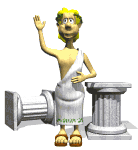
The
Italian Language, Schools, Books, Experiences...
![]()
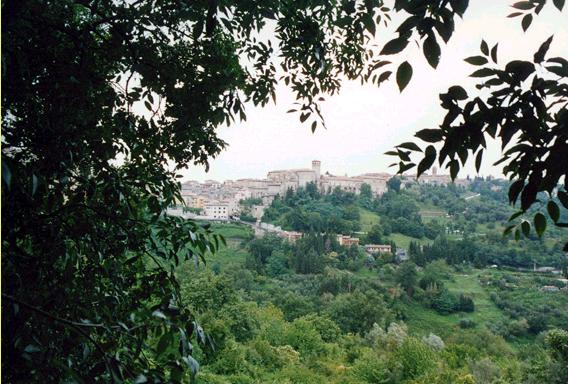
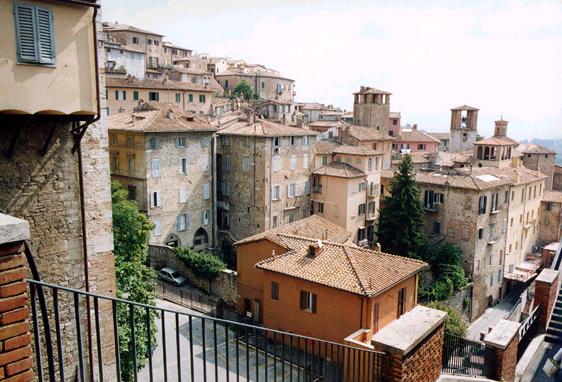
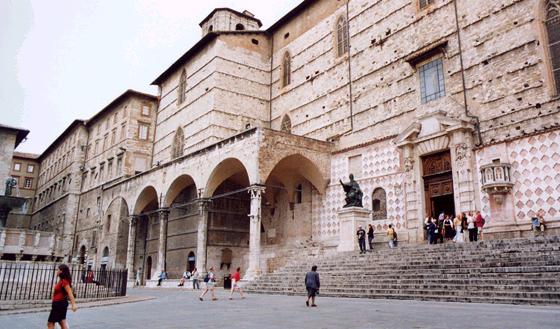
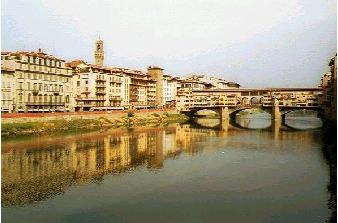
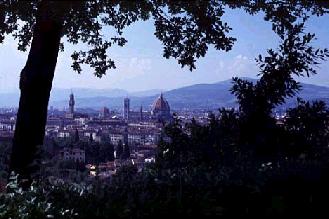

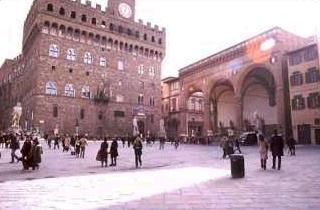
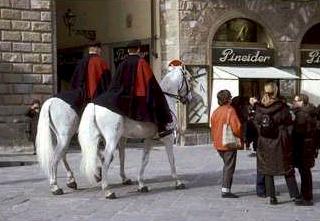
Introduction
Italian University


Schools in Italy
Basic Italian Online and Books
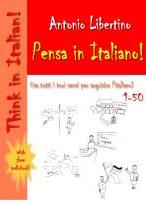
Italian Dialects
Learning Italian
Easy Reading Books
![]()


